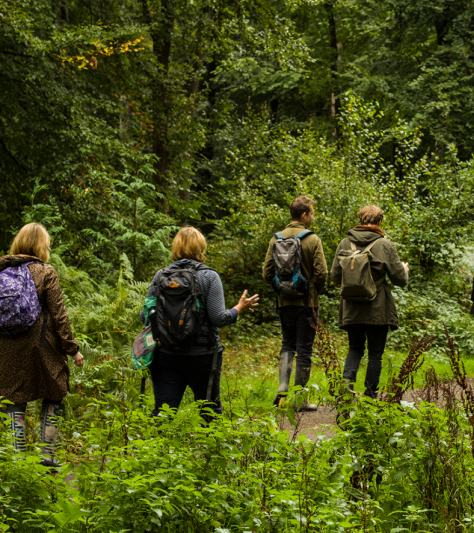The Bede Howell Award for Excellence in Silviculture 2023
Congratulations go to our gold winner, Snowden Close near Brampton, Cumbria, owned by Ash Moss Limited, and silver winner, Hovingham Estate, Yorkshire, owned by Sir William Worsley.
This Award recognises and encourages exemplary silviculture in commercial woodland or compartments of established crops where wood production (quality timber or other commercial products) is the primary aim.
1 Snowden Close near Brampton, Cumbria, owned by Ash Moss Limited, managed by Pryor & Rickett Silviculture
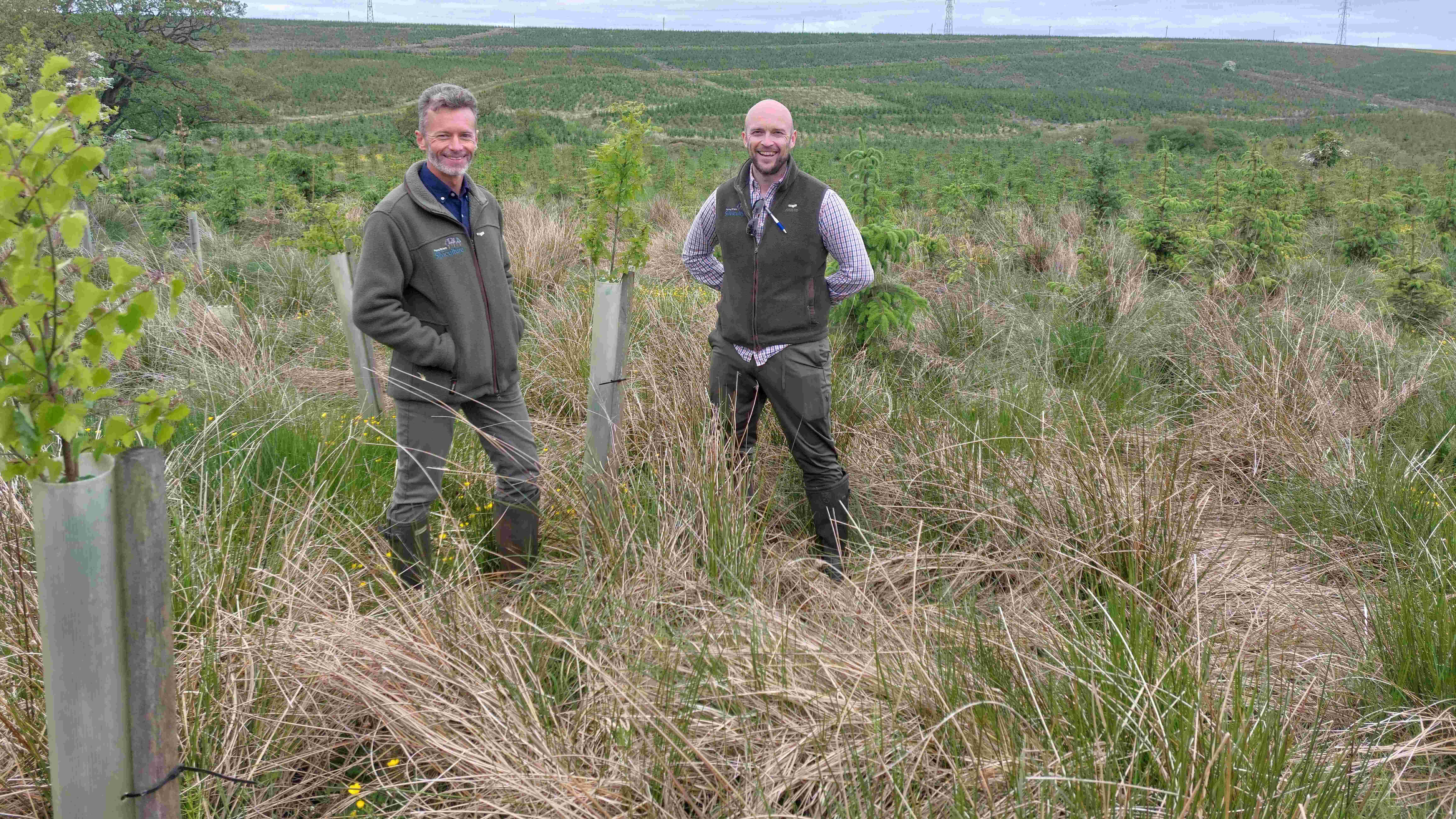
Pictured: Ian Barrington and Chris Hamill from Pryor and Ricketts at Snowden Close
“We were impressed by the plans, especially the zoning to protect and enhance the SSSI biodiversity interests, and the way in which the route of the Maiden Way, a Roman road now largely obscured, was framed by the new forest planting. Improved Sitka spruce stock were used extensively to support productivity objectives, and the judges saw examples of good establishment practice.” Judges
Key points
- 21st century large scale woodland creation
- Pioneering break-of-slope concept for riparian areas
- Enhancing biodiversity, protecting historically important landscapes, and helping mitigate climate change
- 90,000 tonnes estimated long-term timber yield from 180 ha.
“The design and implementation at Snowden Close has produced a productive forest, which protects and enhances several significant features within the site, including a scheduled Roman Road and the SSSI river King Water. To see the developing riparian woodland and framed scheduled monument really provides the sense that we have delivered multiple benefits for the site.” Chris Hamill MICFor, Operations Director – North, Pryor and Rickett
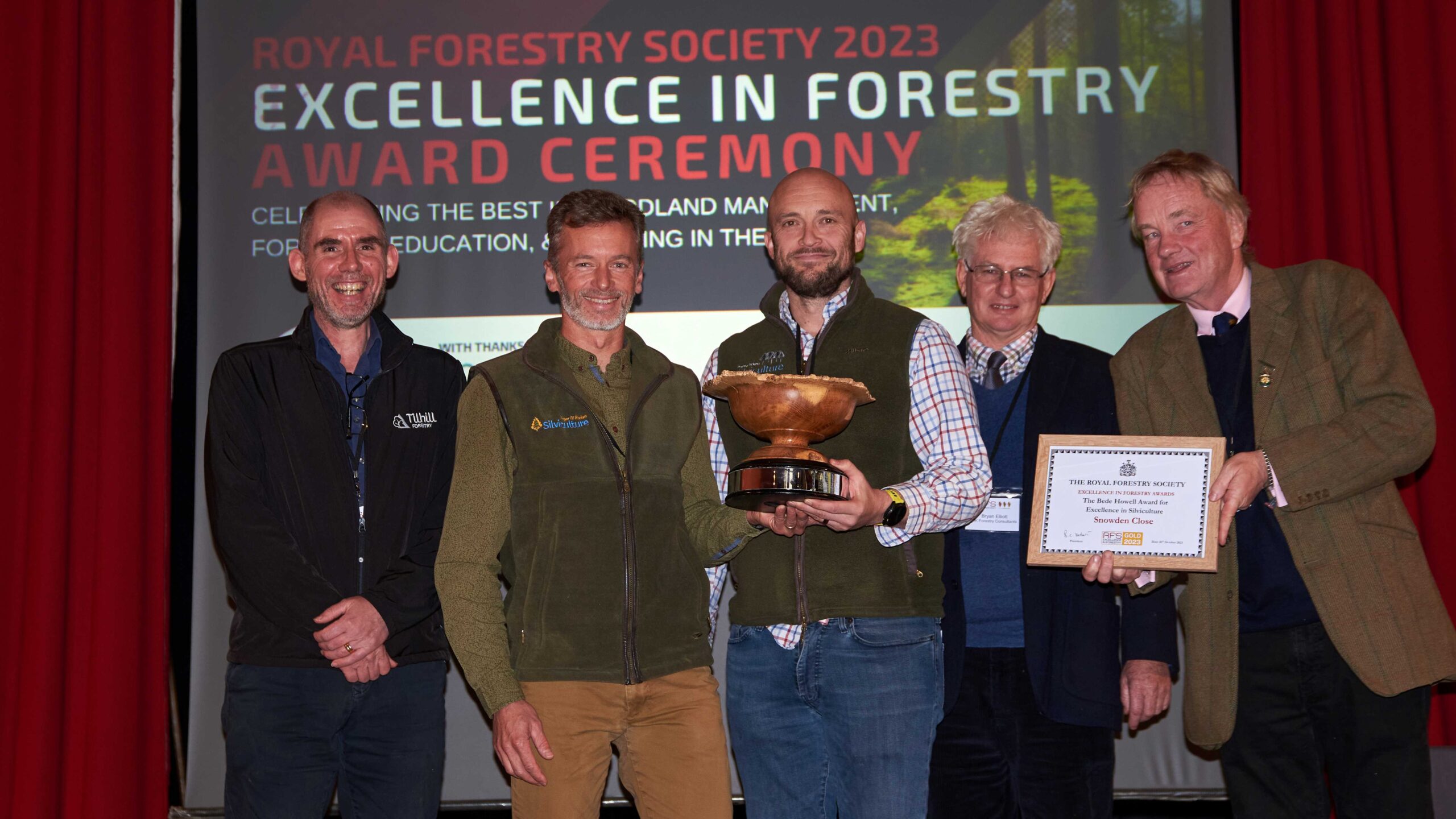
Pictured: From left, David Conway (Tilhill, Sponsor), Ian Barrington and Chris Hamill from Pryor and Ricketts for Snowden Close, Bryan Elliott (judge) and RFS President, Ben Herbert
Snowden Close is a 189 ha new woodland northeast of Brampton on former upland grazing. The land was purchased in 2017. A blend of improved Sitka spruce, Norway spruce, Scots pine and lodgepole pine was chosen. These were planted along with broadleaves such as sessile oak, downy and silver birch, common alder and rowan. Willow species have since been added. Species choice meets multiple objectives at a landscape scale.
The site is important for its archaeological and biodiversity. It includes both a Roman road (Maiden Way) and a riverine Site of Special Scientific Interest (SSSI).
Continuous mounding, hinge mounding and a simple screef and plant were used to promote early growth of seedlings and minimise weed competition. Chemical use has been minimised to reduce environmental impact and protect water quality.
The design pioneered a break-of-slope concept for riparian areas. Steep slopes previously eroded by livestock were planted with a diverse mixture of native broadleaves, improving water quality, and creating a 5-fold increase in priority habitat beside King Water SSSI.
2 The Hovingham Estate woodlands, Hovingham, Yorkshire, owned by Sir William Worsley and managed by Tilhill
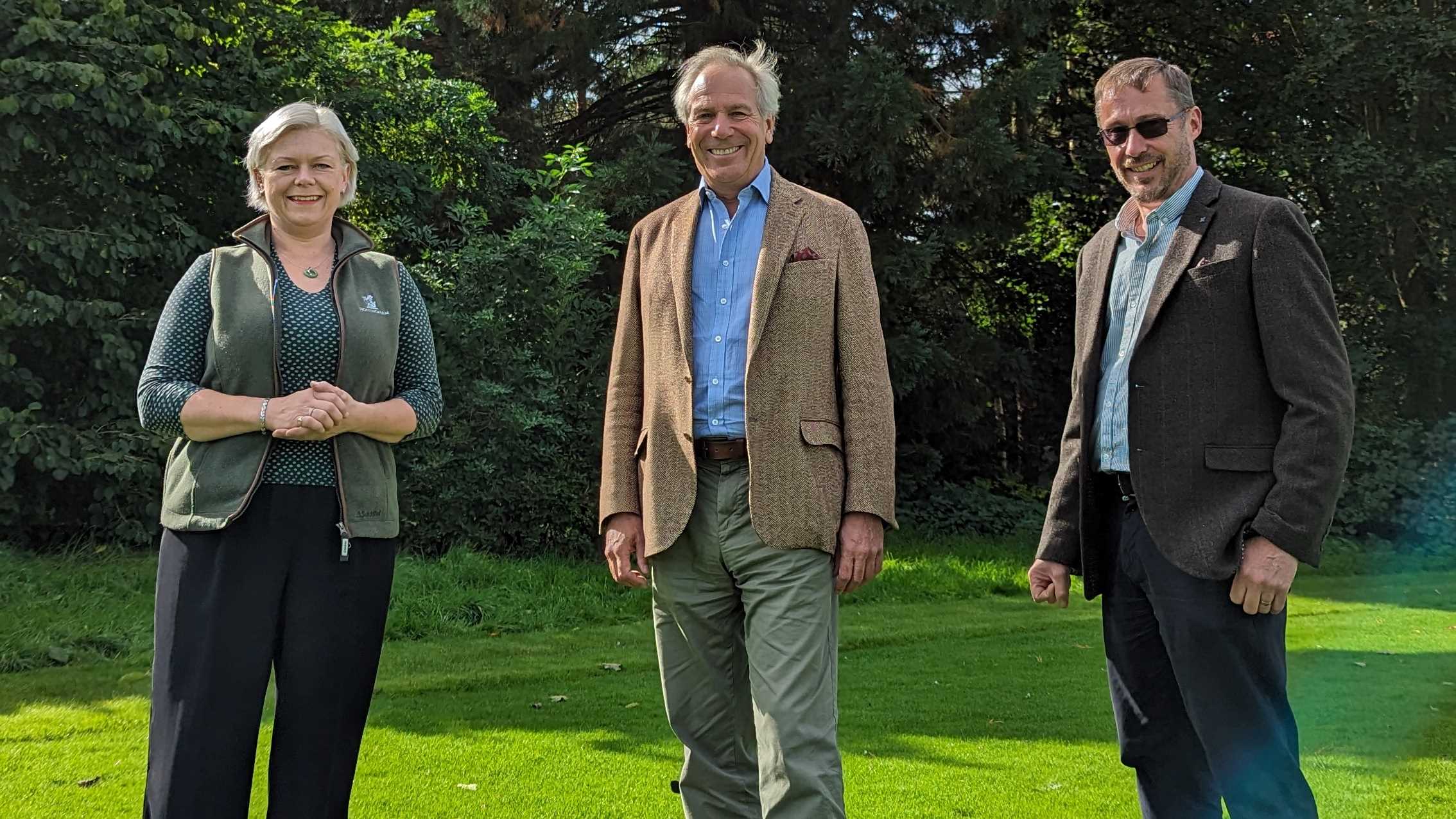
Pictured: From left, Estate Manager Alice Hayter, Owner Sir William Worsley, and David Brown, Tilhill, Forestry Manager
“We were impressed by the co-ordination achieved between the several estate departments. For example, the woodlands present an attractive landscape of high amenity and biodiversity character. They also host an important pheasant shoot by paying especially close attention to the character of woodland edges. The result is a profitable woodland enterprise containing excellent stands of timber. this integrates effectively with sporting and other estate priorities.
“This was an excellent example of consistent silviculture practiced over many years, and narrowly missed top spot in the competition.” Judges
Key points
- Emphasis on the production of high quality saw-logs
- Planting is carried out in intimate mixture to produce mixed woodland
- New silvicultural ideas are being trialled.
“I am very pleased that our robust silvicultural practices implemented here at Hovingham since 1897 have been recognised again. We continue to produce the best quality sawlogs from our diverse woodland. I am delighted to accept the Silver Bede Howell Award for Excellence in Silviculture 2023.” Sir William Worsley.
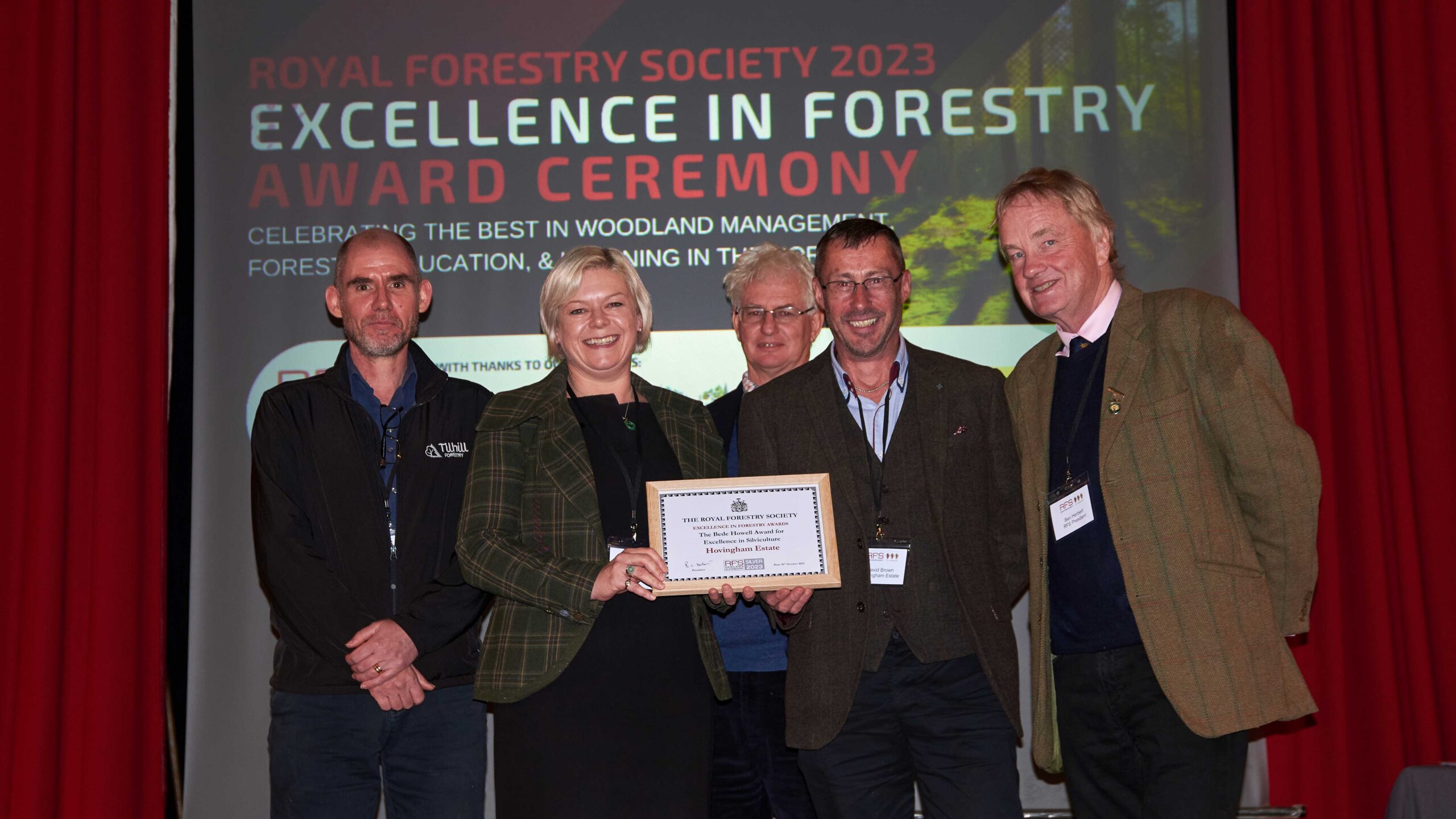
Pictured: From left, David Conway (Tilhill, Sponsor), Hovingham Estate Manager Alice Hayter, Bryan Elliott (judge), Hovingham Estate Forestry Manager David Brown and RFS President Ben Herbert
The 365ha woodlands are part of an Estate owned by the Worsley family since 1563. The present management policy of mainly plantation forestry dates from 1897 with primary species initially being European larch and more latterly Sitka Spruce and Douglas Fir. Hardwood plantations of oak, sycamore, ash or sweet chestnut have also been planted on suitable sites.
The long-term strategy is to continue a policy of mixed woodland. Planting is carried out in intimate mixture. Although this requires greater management the owners believe it provides the best landscape and silvicultural effect, and fully justifies the increased management cost.
The woods are thinned heavily to produce prime quality sawlogs. The pattern of felling and restocking creates age and species variety. The best quality material is subsequently used for furniture carcassing, veneers, turnery, and building materials including boats.
New silvicultural ideas are also being tested. More self-sown birch, for example, is allowed to remain in the plantation to improve species diversity. The Park Woods, which include ancient semi-natural woodland, are managed as continuous cover forestry with group and single tree planting to improve age diversity.


